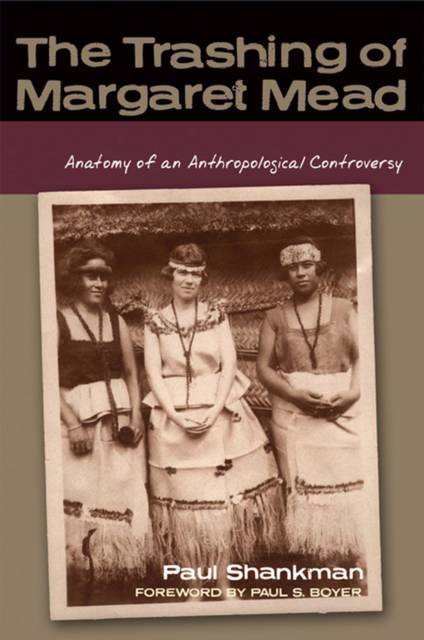
Je cadeautjes zeker op tijd in huis hebben voor de feestdagen? Kom langs in onze winkels en vind het perfecte geschenk!
- Afhalen na 1 uur in een winkel met voorraad
- Gratis thuislevering in België vanaf € 30
- Ruim aanbod met 7 miljoen producten
Je cadeautjes zeker op tijd in huis hebben voor de feestdagen? Kom langs in onze winkels en vind het perfecte geschenk!
- Afhalen na 1 uur in een winkel met voorraad
- Gratis thuislevering in België vanaf € 30
- Ruim aanbod met 7 miljoen producten
Zoeken
€ 31,45
+ 62 punten
Omschrijving
In 1928 Margaret Mead published Coming of Age in Samoa, a fascinating study of the lives of adolescent girls that transformed Mead herself into an academic celebrity. In 1983 anthropologist Derek Freeman published a scathing critique of Mead's Samoan research, badly damaging her reputation. Resonating beyond academic circles, his case against Mead tapped into important public concerns of the 1980s, including sexual permissiveness, cultural relativism, and the nature/nurture debate. In venues from the New York Times to the TV show Donahue, Freeman argued that Mead had been "hoaxed" by Samoans whose innocent lies she took at face value.
In The Trashing of Margaret Mead, Paul Shankman explores the many dimensions of the Mead-Freeman controversy as it developed publicly and as it played out privately, including the personal relationships, professional rivalries, and larger-than-life personalities that drove it. Providing a critical perspective on Freeman's arguments, Shankman reviews key questions about Samoan sexuality, the alleged hoaxing of Mead, and the meaning of the controversy. Why were Freeman's arguments so readily accepted by pundits outside the field of anthropology? What did Samoans themselves think? Can Mead's reputation be salvaged from the quicksand of controversy? Written in an engaging, clear style and based on a careful review of the evidence, The Trashing of Margaret Mead illuminates questions of enduring significance to the academy and beyond. 2010 Distinguished Lecturer in Anthropology at the American Museum of Natural History "The Trashing of Margaret Mead reminds readers of the pitfalls of academia. It urges scholars to avoid personal attacks and to engage in healthy debate. The book redeems Mead while also redeeming the field of anthropology. By showing the uniqueness of the Mead-Freeman case, Shankman places his continued confidence in academia, scholars, and the field of anthropology."--H-Net Reviews
In The Trashing of Margaret Mead, Paul Shankman explores the many dimensions of the Mead-Freeman controversy as it developed publicly and as it played out privately, including the personal relationships, professional rivalries, and larger-than-life personalities that drove it. Providing a critical perspective on Freeman's arguments, Shankman reviews key questions about Samoan sexuality, the alleged hoaxing of Mead, and the meaning of the controversy. Why were Freeman's arguments so readily accepted by pundits outside the field of anthropology? What did Samoans themselves think? Can Mead's reputation be salvaged from the quicksand of controversy? Written in an engaging, clear style and based on a careful review of the evidence, The Trashing of Margaret Mead illuminates questions of enduring significance to the academy and beyond. 2010 Distinguished Lecturer in Anthropology at the American Museum of Natural History "The Trashing of Margaret Mead reminds readers of the pitfalls of academia. It urges scholars to avoid personal attacks and to engage in healthy debate. The book redeems Mead while also redeeming the field of anthropology. By showing the uniqueness of the Mead-Freeman case, Shankman places his continued confidence in academia, scholars, and the field of anthropology."--H-Net Reviews
Specificaties
Betrokkenen
- Auteur(s):
- Uitgeverij:
Inhoud
- Aantal bladzijden:
- 320
- Taal:
- Engels
- Reeks:
Eigenschappen
- Productcode (EAN):
- 9780299234546
- Verschijningsdatum:
- 3/12/2009
- Uitvoering:
- Paperback
- Formaat:
- Trade paperback (VS)
- Afmetingen:
- 162 mm x 228 mm
- Gewicht:
- 426 g

Alleen bij Standaard Boekhandel
+ 62 punten op je klantenkaart van Standaard Boekhandel
Beoordelingen
We publiceren alleen reviews die voldoen aan de voorwaarden voor reviews. Bekijk onze voorwaarden voor reviews.









